




Message from the Director
Release of the DIFC Court Annual Report 2023
Issuance of the decree on conflicts of jurisdiction
Moro Hub presents Green Certificate to the DIFC Courts
MoU signing with The Law Society Hong Kong
Courts of Space Moot Court competition
Outreach and partnerships
3 4 6 7 9 10 8
Welcome to the first DIFC Courts Bulletin of 2024.
The UAE’s recently confirmed top ten (10) position with the global competitiveness ranking is a testament to the dynamism of its economy, with the report specifically noting the UAE’s stellar and effective dispute resolution mechanisms as the underpin of its competing economic segments.
As emerging markets consolidate good governance structures based on accountability, transparency, and efficiency benchmarks, they recognise the need for a strong impartial judiciary, which supports other macroeconomic and governance efforts.
Our full year 2023 results are an evident reflection of the continued trust in our forum to solve the region’s diverse range of disputes. The Courts recorded an increase in both the volume and value of cases in almost every instance in 2023. The increase in enforcement applications also highlights our ability to assist businesses through a robust national, regional, and international enforcement network.
We are delighted to have received the Green Certificate from Moro Hub, a subsidiary of Digital DEWA, the digital arm of Dubai Electricity and Water Authority (PJSC). This acknowledgement strengthens our commitment to adopting environmentally friendly practices in our operations. This is a validation of our strategic decision to embrace technology that meets high standards and also integrates with our commitment to the environmental responsibility. By leveraging Moro Hub’s Green Cloud, we are confident in its ability to enable us to streamline IT operations and make meaningful strides in reducing our environmental impact.
His Highness Sheikh Mohammed bin Rashid Al Maktoum, Vice President and Prime Minister of the UAE, in his capacity as the Ruler of Dubai, issued Decree No. (29) of 2024 on the ‘Judicial Authority for Resolving Jurisdictional Conflicts between the DIFC Courts and Judicial Authorities in the Emirate of Dubai.
The DIFC Courts is honoured to be appointed to this new judicial body for jurisdiction conflicts. Prior to the confirmation of this Decree, we had conducted extensive consultation with our stakeholders across the public sector, with legal representatives from leading businesses, and with legal practitioners from the DIFC and wider Dubai communities. Feedback and recommendations from our stakeholders were reviewed and shared with the Judicial Council for final determination. We are, therefore, confident that this new judicial entity will overcome past obstacles related to jurisdiction conflicts and provide improved clarity of process, increased administrative efficiency, and greater transparency for all parties concerned.
We have also launched the inaugural Courts of Space Moot Court hybrid competition, a joint initiative between the Dubai Future Foundation and the DIFC Courts. These competing teams in this year’s Moot Court represent the next generation of potential space lawyers and we are proud to be helping shape their future knowledge and expertise through this Moot Court exercise.
Whilst the court will convene firmly on the ground in Dubai and not in space, our judges are acquiring the specialist skills to be able to hear space economy-related disputes. Training and the development of guides and of best practices will be key to ensuring that the space courts in Dubai become the courts of choice.
The development of modern commercial courts should rank among the region’s foremost achievements of the last two decades; not the facilities themselves, but rather the certainty that they have brought to the domestic and international businesses and individuals operating in the region.
Because Connectivity is one of the four mission pillars of the DIFC Courts and crafting productive partnerships underpins this objective, we were pleased to have signed a cooperation agreement with The Law Society Hong Kong.
By working together with other legal bodies from across the world to explore practical synergies, and by sharing best practices, we will be best able to support our respective business communities and the economic success of our respective states. This has been our experience; that collaborative relationships serve not just the organisations involved, but, more importantly, the overall good of the communities we serve.
The performance of the DIFC Courts, thus far, is a testament to the maturity of both our service offering and to the infrastructure we continue to develop to meet the evolving needs of court users. Adopting user-friendly procedures, reinforcing the overall courts experience, and fine-tuning effective and less-expensive access to dispute resolution procedures are core pillars to our mission, working in tandem with national mandates to support Dubai and the UAE’s economic ambitions.
Our ultimate goal is to provide legal certainty and confidence to both the domestic public and foreign investors.
The result of a successful civil and commercial judicial reform is to enable businesses to flourish and people to interact in a stable and predictive environment.
H.E. Justice Omar Al Mheiri Director, DIFC Courts
Maktoum bin Mohammed:
“The DIFC Courts’ innovative strategy is inspired by Mohammed bin Rashid’s vision to establish Dubai as one of the world’s leading financial hubs and set new global standards in judicial dispute resolution”
In April, the Dubai International Financial Centre (DIFC) Courts released its annual figures for the full year of 2023. The English-language, common law judiciary witnessed continued growth to help global businesses resolve their largest and most complex disputes while becoming the increasingly preferred forum for settling the smaller claims of corporations, SMEs, and individuals.
His Highness Sheikh Maktoum bin Mohammed bin Rashid Al Maktoum, Deputy Ruler of Dubai, First Deputy Prime Minister and Minister of Finance of the UAE, and President of the DIFC, affirmed that the increasingly international nature of the DIFC Courts’ caseload is a clear signal that international businesses with interests in the Middle East region consider Dubai and the DIFC Courts to be their first choice for dispute resolution.
His Highness further said: “The strong growth momentum arising from the implementation of the Dubai Economic Agenda D33, and the Dubai Digital Strategy has touched a diverse range of sectors, including government legal services. We have empowered the DIFC Courts to spearhead some of the UAE’s most progressive dispute resolution services, supported by smart technology implementations. This innovative strategy of the DIFC Courts is inspired by the vision of His Highness Sheikh Mohammed bin Rashid Al Maktoum, Vice President and Prime Minister of the UAE and Ruler of Dubai, to establish the city as one of the world’s leading financial hubs and set new global standards in judicial dispute settlement.”

Signaling strong public confidence, the workload of the main Court of First Instance (CFI), including arbitration-related cases and counter claims, recorded 111 cases, with a total case value of AED 16.5 billion.
An average case value of AED 228.8 million was recorded across CFI cases. The total value of cases related to the Arbitration Division of the DIFC Courts was AED 13.4 billion, with the average case value standing at AED 955.2 million.
Cases brought before the CFI covered a range of sectors including banking and finance, real estate, retail, and manufacturing, and involved disputes related to breach of contract, insolvency, arbitration agreements, and employment
Reinforcing the Courts’ record of certainty for business through enforceable judgments, a total of 325 enforcement claims were filed in 2023.
The Small Claims Tribunal (SCT) recorded 522 cases in 2023. Cases were primarily related to disputes related to breach of contract, property and tenancy, employment, and banking and finance.
Underlining the SCT’s increasing popularity for SME-related dispute resolution, the total value of claims recorded in 2023 was AED 52 million, an increase of 20% compared with the same period in 2022. The average case value recorded at the SCT for 2023 was AED 105,000, an increase of 9% from 2022.
In 2023, the DIFC Courts forged partnership agreements with Dubai Chambers to drive closer collaboration in support of Dubai and the UAE’s economic ambitions, as well Ras Al Khaimah Digital Assets Oasis (RAK DAO), that will drive greater awareness of DIFC Courts digital economy services to businesses operating within Ras Al Khaimah’s newly launched digital economy freezone.
The most noteworthy development within the ancillary services offered by the DIFC Courts was the surge in registrations of Wills: in 2023, the Wills Service registered over 1,500 Wills, a 26% increase from 2022.
In addition, the total number of Probate applications related to Wills in 2023 rose 21% from 2022 to reach 28.

In April, in his capacity as the Ruler of Dubai, His Highness Sheikh Mohammed bin Rashid Al Maktoum, Vice President and Prime Minister of the UAE issued Decree No. (29) of 2024 on the ‘Judicial Authority for Resolving Jurisdictional Conflicts between DIFC Courts and Judicial Authorities in the Emirate of Dubai’.
The provisions of the Decree are applicable to judicial bodies in Dubai, including the Court of Cassation, the Court of Appeal and the Court of First Instance, and any other court that will be established as part of the Judicial Authority in Dubai. The Decree also applies to DIFC Courts.
As per the Decree, the name of the Judicial Tribunal for Dubai Courts and DIFC Courts will be changed to the ‘Judicial Authority for Resolving Jurisdictional Conflicts between DIFC Courts and Judicial Authorities in Dubai’, wherever it appears in any legislation applicable in the Emirate of Dubai.
According to the Decree, the new Authority will be chaired by the President of the Court of Cassation at Dubai Courts, while the Deputy Chief Justice of DIFC Courts will serve as Deputy Chairman of the Authority. Members of the Authority also include the Secretary General of the Dubai Judicial Council, the President of the Court of Appeal at Dubai Courts, the President of the Court of First Instance at Dubai Courts, and two DIFC Courts judges selected by the Chief Justice of DIFC Courts.
The Chairman of the Authority is authorised to appoint an employee from any of Dubai’s judicial bodies to assume the role of the Secretary General of the Authority.
According to the Decree, the Authority is tasked with determining the competent court for disputes, specifying enforceable judgments in case of conflicts, and implementing tasks assigned by the Ruler of Dubai or the Chairman of the Dubai Judicial Council.
According to the Decree, decisions issued by the Authority are final and not subject to appeal in any form.
Furthermore, the legal rules set by the Judicial Authority in decisions under the purview of the Decree will be considered as judicial principles binding on all courts, including those of the DIFC Courts. Any subsequent ruling conflicting with these rules are subject to appeal through legally defined channels.
The Chairman of the Dubai Judicial Council will issue the decisions necessary to implement this Decree which replaces Decree No. (19) of 2016 on the Judicial Tribunal for the Dubai Courts and DIFC Courts.
This Decree annuls any other legislation that may contradict it. Decisions issued as part of Decree No. (19) of 2016 will remain in place as far as it doesn’t contradict with this Decree, until new ones replace them.
Decree No. (29) of 2024 will be published in the Official Gazette, and is effective the day after its publication.


In February, Moro Hub, a subsidiary of Digital DEWA, the digital arm of Dubai Electricity and Water Authority (PJSC), awarded the Green Certificate to the Dubai International Financial Centre (DIFC) Courts in recognition of their commitment to sustainability for utilising Moro Hub’s Green Cloud for their IT workloads. The Green Certificate was presented to H.E. Justice Omar Al Mheiri, Director of the DIFC Courts, by Eng. Marwan Bin Haidar, Vice Chairman and Group CEO of Digital DEWA.
Moro Hub’s Green Cloud is designed and developed to offer private and public enterprises energy-efficient solutions. This initiative actively contributes to diminishing carbon footprints and supports sustainable practices within the dynamic digital realm. Recognising the importance of eco-friendly solutions, the DIFC Courts has selected Moro Hub’s Green Cloud to drive their IT infrastructure.
“We commend the DIFC Courts commitment to sustainability. By opting for Moro Hub’s Green Cloud, the DIFC Courts is optimising its IT operations and actively contributing to the broader goal of constructing a more sustainable future. This collaborative effort solidifies our shared values of promoting innovation, upholding excellence, and embracing environmental responsibility.
As part of this collaboration, we, at Moro Hub, look forward to supporting the DIFC Courts in achieving its sustainability goals while providing cutting-edge technology solutions that exceed the international standards,” said Eng. Marwan Bin Haidar, Vice Chairman and Group CEO of Digital DEWA.
The Green Certificate presented to the DIFC Courts signifies Moro Hub’s efforts to support organisations in adopting sustainable practices for their digital infrastructure needs.
The certification highlights the DIFC Courts’ contribution to minimising energy consumption and nurturing a green IT environment.
Moro Hub remains at the forefront of technological innovation, providing businesses and government entities with dynamic solutions for their digital transformation journey. The Green Certificate initiative reflects Moro Hub’s dedication to implementing a sustainable and resilient digital ecosystem.
In May, the DIFC Courts has further cemented relations with one of Asia’s leading financial centres through a cooperation agreement with The Law Society of Hong Kong.
The MoU was signed as part of a Hong Kong delegation visit, which also included Mr. Paul Lam SC, Secretary for Justice of the Hong Kong Special Administrative Region Government, and the Hong Kong Trade Development Council (HKTDC).
Devised as a mandate for knowledge sharing and cooperation, resulting collaboration through memoranda activities serve as a mechanism to foster investor confidence and cultivate further access to justice. This memorandum with The Law Society of Hong Kong will also aid closer relations between two leading common law institutions, as well as facilitating more confidence for businesses from Hong Kong and the UAE transacting between two of Asia’s leading financial centres.
Mr. C. M. Chan, President, The Law Society of Hong Kong, said “We are grateful to have the DIFC Courts’ continuous support and participation at The Law Society of Hong Kong’s events in the past. I am pleased that we are now taking this relationship to new heights by formalising a Memorandum of Understanding - the first agreement of its kind between The Law Society of Hong Kong and a Middle East courts system. It represents a new chapter underscoring our shared belief in the power of
international cooperation and exchange to strengthen our respective legal frameworks.
Through this partnership, we hope to facilitate knowledge sharing, training programmes, and mutually supportive initiatives. By working together, I am confident that we can make invaluable contributions to the legal profession and the business community in our respective jurisdictions and beyond.”
In early 2024, Hong Kong confirmed its ongoing strong trade relations with the UAE, and the Emirates pivotal role as a trade hub for Hong Kong in the Middle East region. Hong Kong’s Census and Statistics Department confirmed in 2024 that non-oil foreign trade value between the two sides surged from $9.4 billion in 2020 to $16.23 billion in 2022.
Non-oil foreign trade value continued to grow in 2023, reaching $16.2 billion in the first 11 months of the year. The HKTDC also confirmed in early 2024 the eagerness of Hong Kong companies to invest in UAE economy sectors, including infrastructure, information technology, financial technology (Fintech), health technology, and bio-health.
This newest cooperation agreement between UAE and Hong Kong entities follows various DIFC Courts visits to Mainland China and Hong Kong over the past decade, in which memoranda were signed with the Shanghai High People’s Court in 2016, the Hangzhou Arbitration Commission in 2017, and the Hong Kong High Court in 2018.
The inaugural Courts of Space Moot Court, a joint initiative of the Dubai International Financial Centre (DIFC) Courts and the Dubai Future Foundation (DFF), launched into orbit in 2024, with the hybrid competition held between May 7 – May 21, 2024.
A total of 15 teams entered the Moot Court competition; eight (8) international and seven (7) UAE-based university teams competed across four (4) days of online preliminary and quarter-final rounds, with the semi-final rounds and final conducted in-person at the DIFC Courts.
By participating in the moot, students gained valuable insight into the DIFC Courts Rules in relation to conflict on matters such as breach of contract and regulation in relation to space tourism.
At the same time, scenarios were developed to better understand the kinds of cases that might emerge in this relatively novel environment.
Hamad Bin Khalifa University and the Gujarat National Law University competed in the final round of the competition with Qatar’s Hamad Bin Khalifa University emerging as eventual winners in a closely contested finale.
Moot Court event partners from Middlesex University, webnyay and Space Monitor Middle East joined the DIFC Courts and the Dubai Future Foundation with recognition and awards for the wining team and for individual outstanding performances during the competition.
Launched in 2021 in partnership with Dubai Future Foundation, the Courts of Space project joined the Courts of the Future, which was established in 2017 with a mandate to explore diverse legal technology topic areas and to provide research and thought leadership on promoting and encouraging contemporary methods of greater accessibility and efficiency to court users across the globe.
Partnering with key private sector players and gaining trust to become a specialised court for commercial agreements will be key. More dynamically, space courts resolution might be required as satellites collide or impact a spacecraft. Space courts would be called upon to adjudicate responsibility, damages, and liabilities, as is the case with any commercial dispute.
In 2020, the UAE became a key player in space exploration; it aims to reinforce its position by enhancing its standing as a global business centre for trade, logistics, finance, innovation, and technology. The UAE has massively boosted its science capacity, with new data expected to now flow from probes to fill a gap in research and provide the world with more information about our solar system and beyond.
Justice Michael Black, Court of Appeal Judge & Judge in Charge of the Digital Economy Court, has participated in the 12th ICC MENA Conference, where the panellists discussed ‘party autonomy, between efficiency and enforceability: how is the balance struck?’.

During a relation-building
to the
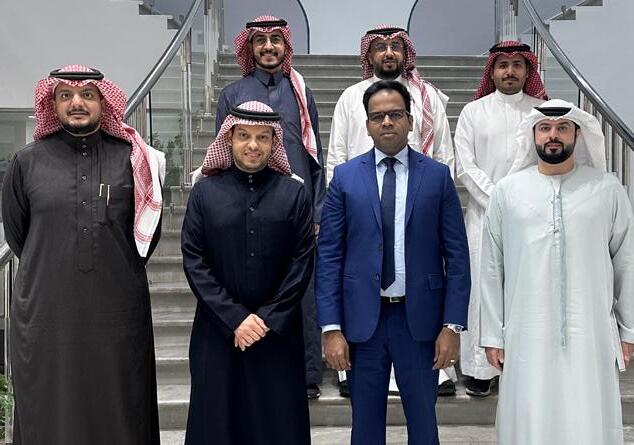
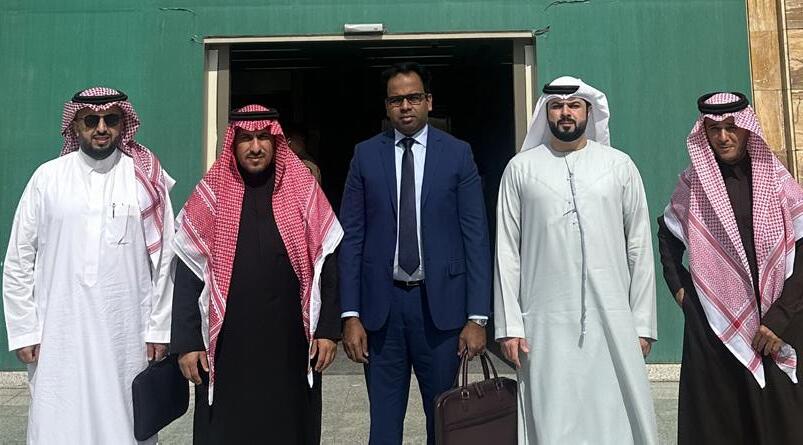
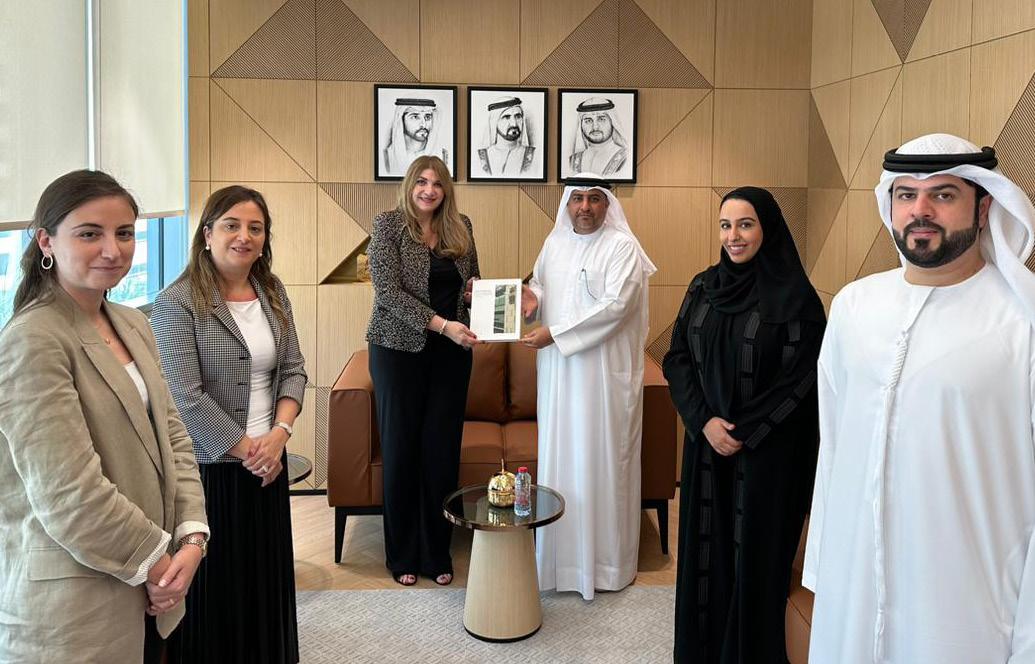
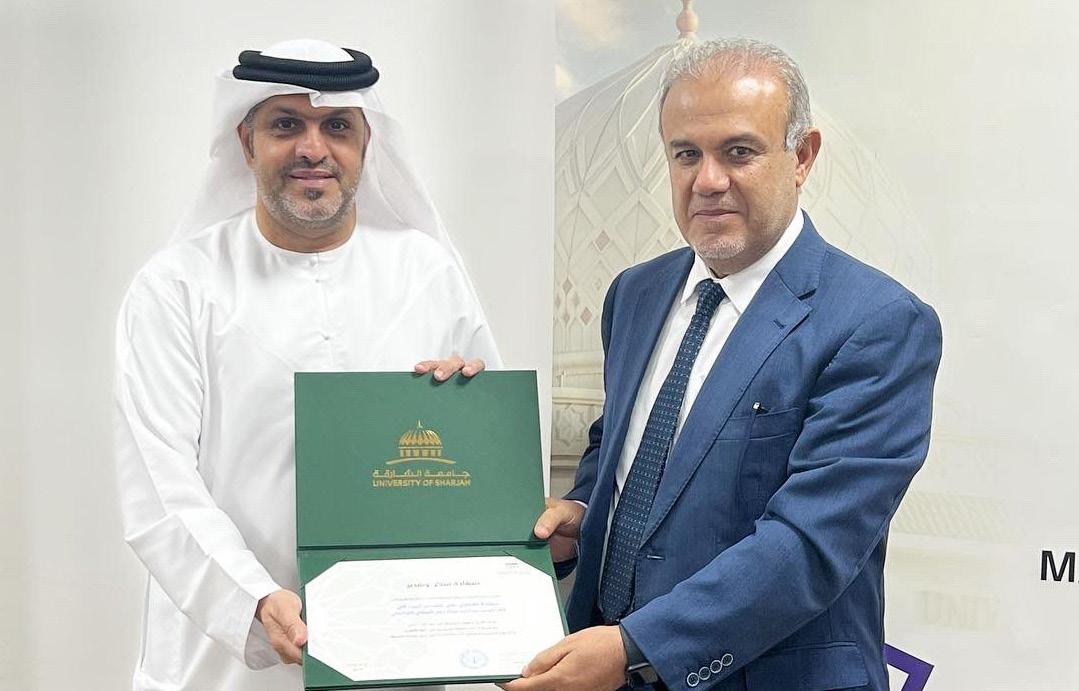
During a trip to the Kingdom of
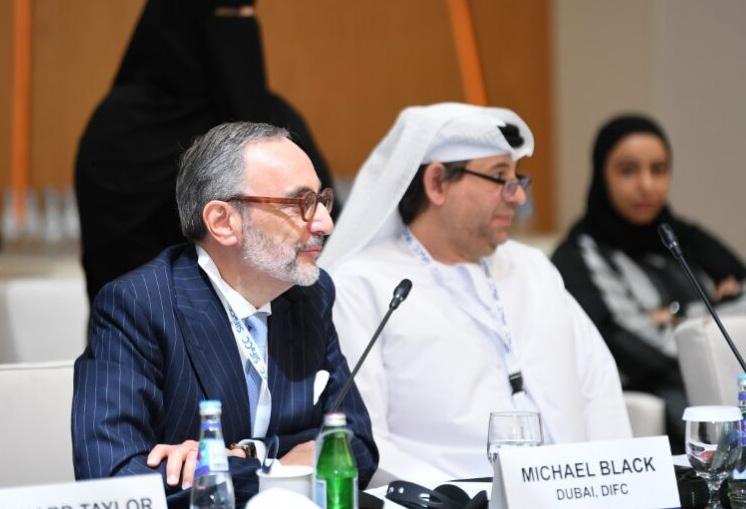
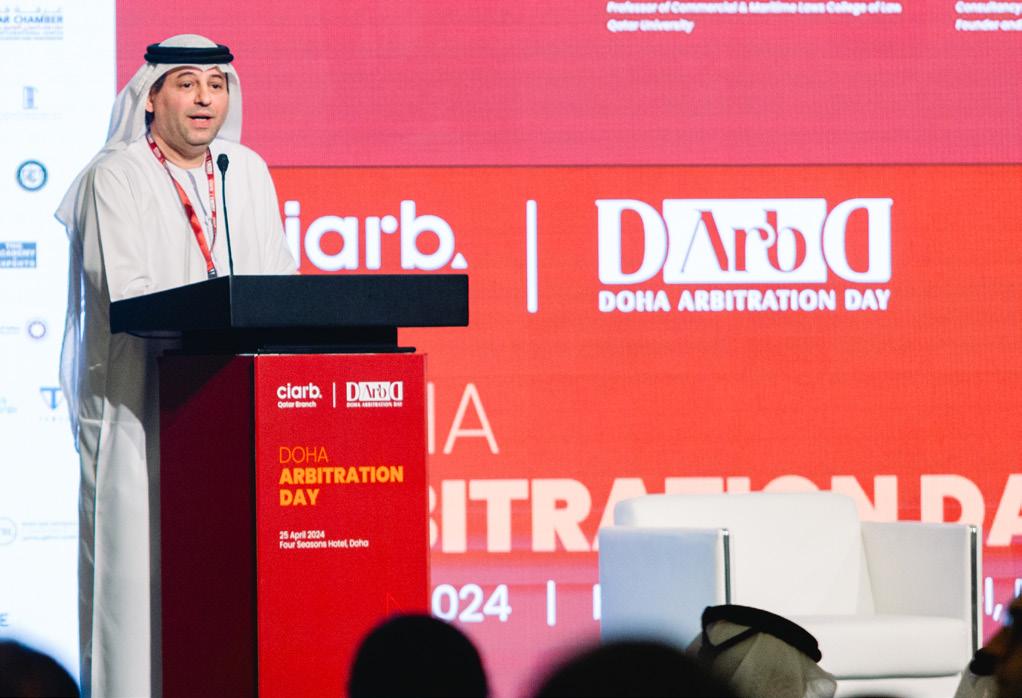
During a recent trip to the State of Qatar, H.E. Justice Shamlan Al Sawalehi, Court of Appeal Judge & Judge in Charge of Arbitration Division; Justice Michael Black, Court of Appeal Judge & Judge in Charge of the Digital Economy Court; and the DIFC Courts team took part in engaging discussions at the Standing International Forum of Commercial Courts (SIFoCC) and Doha Arbitration Day, where invaluable insights were shared and gained during the sessions.
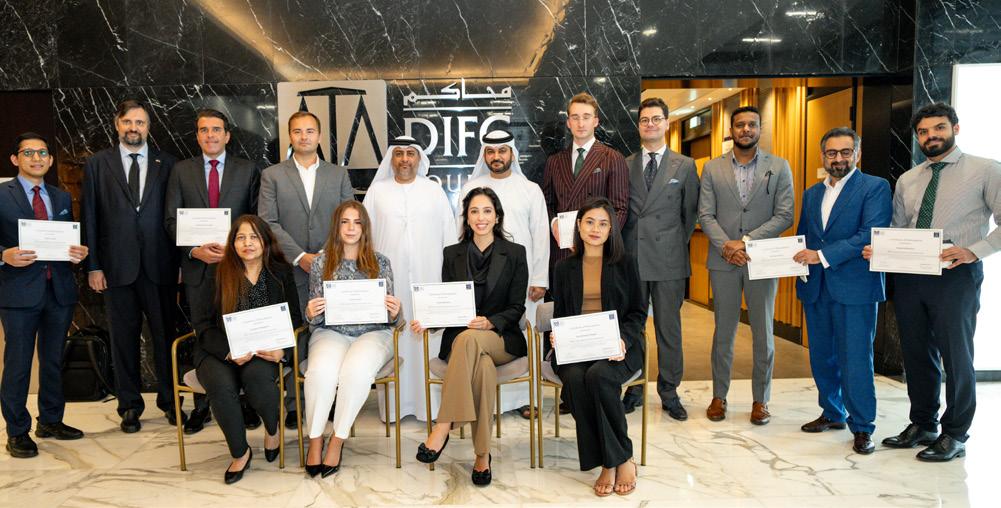
The DIFC Courts held Advocacy Training, in collaboration with the International Advocacy Training Council (IATC) and supported by the Government of Dubai Legal Affairs Department.
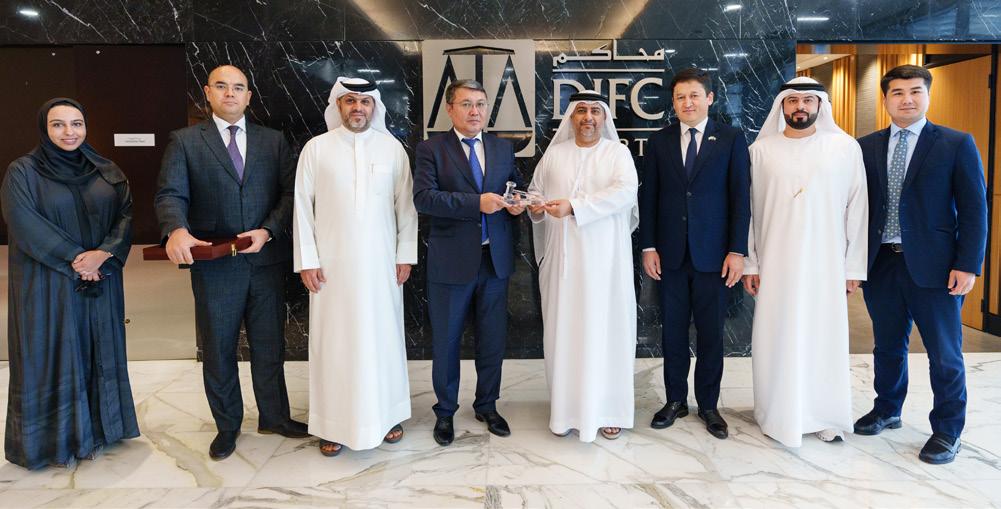
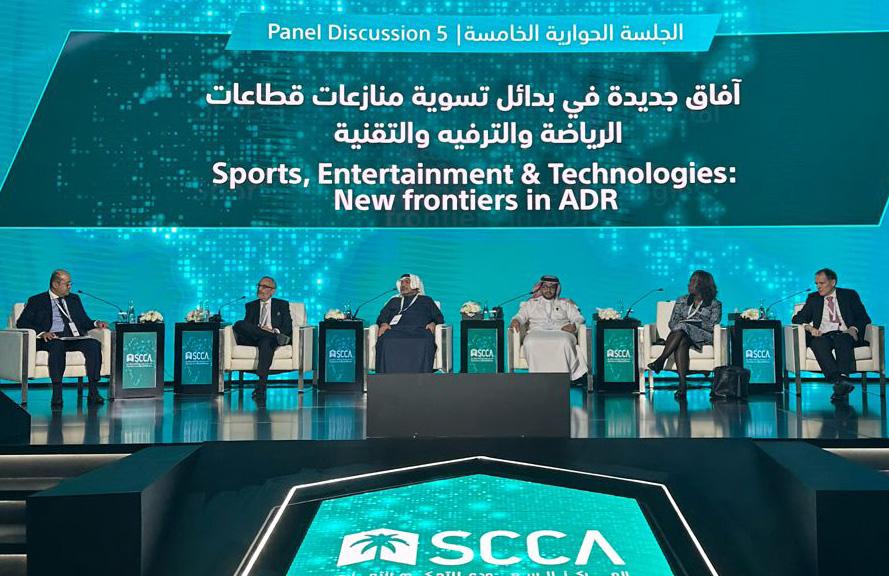
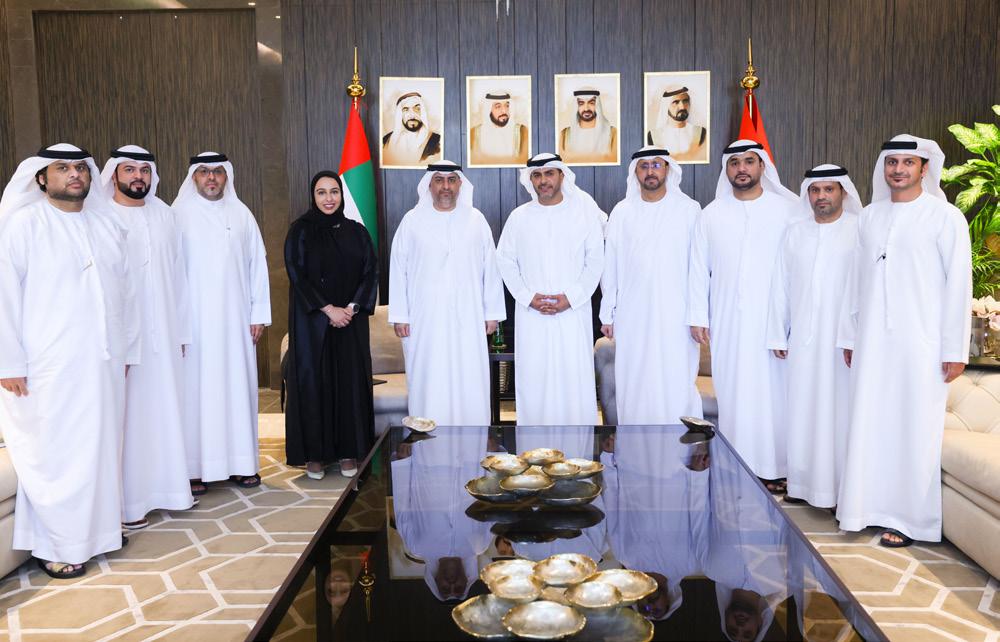
During a trip to the Kingdom of Saudi Arabia (KSA), Justice Michael
and